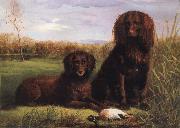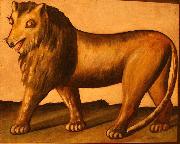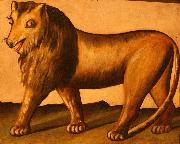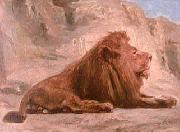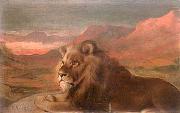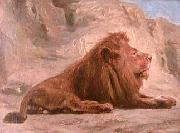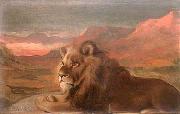Wholesale Oil Painting No Minimum |
|||||||||||
|
|
|||||||||||

|
|||||||||||
|
|
|
||||||||
|
|
||||||||
Lion
Lion Painting ID:: 37785 |
sn02
Oil on canvas
sn02 Oil on canvas |
|||||||
|
|
||||||||
Niko Pirosmanashvili(born Niko Pirosmanashvili; May 5, 1862-1918) was a Georgian primitivist painter. Pirosmani was born in the Georgian village of Mirzaani to a pleasant family in the Kakheti province. His family owned a small vineyard. He was later orphaned and put in the care of his two elder sisters. He moved with them to Tbilisi in 1870. In 1872 he worked as a servant for wealthy families and learned to read and write Russian and Georgian. In 1876 he returned to Mirzaani and worked as a herdsman. Pirosmani gradually taught himself to paint. One of his specialties was painting directly into black oilcloth. In 1882 he opened a workshop in Tbilisi which was unsuccessful. In 1890 he worked as a railroad conductor, and in 1895 worked creating signboards. In 1893 he co-founded a dairy farm in Tbilisi which he left in 1901. Throughout his life Pirosmani, who was always poor, was willing to take up ordinary jobs including housepainting and whitewashing buildings. Although his paintings had some local popularity (about 200 survive) his relationship with professional artists remained uneasy; making a living was always more important to him than abstract aesthetics. |
||||||||
|
|
||||||||
|
|
Lion
Lion Painting ID:: 72229 |
from 1862(1862) until 1918(1918)
Oil on cardboard
80 X 100 cm (31.5 X 39.37 in)
cjr from 1862(1862) until 1918(1918) Oil on cardboard 80 X 100 cm (31.5 X 39.37 in) cjr |
||||||
|
|
||||||||
Niko Pirosmanashvili(born Niko Pirosmanashvili; May 5, 1862-1918) was a Georgian primitivist painter. Pirosmani was born in the Georgian village of Mirzaani to a pleasant family in the Kakheti province. His family owned a small vineyard. He was later orphaned and put in the care of his two elder sisters. He moved with them to Tbilisi in 1870. In 1872 he worked as a servant for wealthy families and learned to read and write Russian and Georgian. In 1876 he returned to Mirzaani and worked as a herdsman. Pirosmani gradually taught himself to paint. One of his specialties was painting directly into black oilcloth. In 1882 he opened a workshop in Tbilisi which was unsuccessful. In 1890 he worked as a railroad conductor, and in 1895 worked creating signboards. In 1893 he co-founded a dairy farm in Tbilisi which he left in 1901. Throughout his life Pirosmani, who was always poor, was willing to take up ordinary jobs including housepainting and whitewashing buildings. Although his paintings had some local popularity (about 200 survive) his relationship with professional artists remained uneasy; making a living was always more important to him than abstract aesthetics. |
||||||||
|
|
||||||||
|
|
Lion
Lion Painting ID:: 73845 |
Date from 1862(1862) until 1918(1918)
Medium Oil on cardboard
Dimensions 80 X 100 cm (31.5 X 39.37 in)
cyf Date from 1862(1862) until 1918(1918) Medium Oil on cardboard Dimensions 80 X 100 cm (31.5 X 39.37 in) cyf |
||||||
|
|
||||||||
Pedro Americode Figueiredo e Melo (Areia, Brazil, 29 April 1843 - Florence, Italy, 7 October 1905) was one of the most important academic painters of Brazil. He was also a writer and a teacher. He moved to Rio de Janeiro in 1854, where he was granted a scholarship to study in the Academia Imperial de Belas Artes (Imperial Academy of Fine Arts). Later he furthered his studies in Europe, at the École des Beaux-Arts in Paris, being a pupil of Jean-Auguste-Dominique Ingres, Hippolyte Flandrin and Carle-Horace Vernet, winning much praise for his paintings, and achieving the Doctorate in Sciences at the University of Brussels, in 1868. Returning to Brazil, he produced a great series of masterpieces, including one of the most well known works of art in Brazil: Independence or Death!, depicting the moment when Prince Peter declared the country independent from Portugal, a work that has illustrated History books for elementary schools in Brazil for decades. Living mostly in Florence, Italy but traveling extensively back and forth from Rio de Janeiro, Pedro Am??rico managed to work also as a lecturer and an art historian. He married Carlota de Ara??jo Porto-alegre (1844?C1918), daughter of painter and diplomat Manuel de Ara??jo Porto-alegre, and they had children. Knighted by the German Crown he was also Great Knight of the Order of the Holy Sepulchre. With the proclamation of the Republic in Brazil in 1889, he was elected a deputy of the National Assembly. |
||||||||
|
|
||||||||
|
|
Lion
Lion Painting ID:: 87461 |
Date c. 1895(1895)
Medium Oil on cardboard
Dimensions 14 x 19 cm (5.5 x 7.5 in)
cjr Date c. 1895(1895) Medium Oil on cardboard Dimensions 14 x 19 cm (5.5 x 7.5 in) cjr |
||||||
|
|
||||||||
Pedro Americode Figueiredo e Melo (Areia, Brazil, 29 April 1843 - Florence, Italy, 7 October 1905) was one of the most important academic painters of Brazil. He was also a writer and a teacher. He moved to Rio de Janeiro in 1854, where he was granted a scholarship to study in the Academia Imperial de Belas Artes (Imperial Academy of Fine Arts). Later he furthered his studies in Europe, at the École des Beaux-Arts in Paris, being a pupil of Jean-Auguste-Dominique Ingres, Hippolyte Flandrin and Carle-Horace Vernet, winning much praise for his paintings, and achieving the Doctorate in Sciences at the University of Brussels, in 1868. Returning to Brazil, he produced a great series of masterpieces, including one of the most well known works of art in Brazil: Independence or Death!, depicting the moment when Prince Peter declared the country independent from Portugal, a work that has illustrated History books for elementary schools in Brazil for decades. Living mostly in Florence, Italy but traveling extensively back and forth from Rio de Janeiro, Pedro Am??rico managed to work also as a lecturer and an art historian. He married Carlota de Ara??jo Porto-alegre (1844?C1918), daughter of painter and diplomat Manuel de Ara??jo Porto-alegre, and they had children. Knighted by the German Crown he was also Great Knight of the Order of the Holy Sepulchre. With the proclamation of the Republic in Brazil in 1889, he was elected a deputy of the National Assembly. |
||||||||
|
|
||||||||
|
|
Lion
Lion Painting ID:: 87463 |
Date c. 1895(1895)
Medium Oil on cardboard
Dimensions 14 x 19 cm (5.5 x 7.5 in)
cjr Date c. 1895(1895) Medium Oil on cardboard Dimensions 14 x 19 cm (5.5 x 7.5 in) cjr |
||||||
|
|
||||||||
Pedro Americode Figueiredo e Melo (Areia, Brazil, 29 April 1843 - Florence, Italy, 7 October 1905) was one of the most important academic painters of Brazil. He was also a writer and a teacher. He moved to Rio de Janeiro in 1854, where he was granted a scholarship to study in the Academia Imperial de Belas Artes (Imperial Academy of Fine Arts). Later he furthered his studies in Europe, at the École des Beaux-Arts in Paris, being a pupil of Jean-Auguste-Dominique Ingres, Hippolyte Flandrin and Carle-Horace Vernet, winning much praise for his paintings, and achieving the Doctorate in Sciences at the University of Brussels, in 1868. Returning to Brazil, he produced a great series of masterpieces, including one of the most well known works of art in Brazil: Independence or Death!, depicting the moment when Prince Peter declared the country independent from Portugal, a work that has illustrated History books for elementary schools in Brazil for decades. Living mostly in Florence, Italy but traveling extensively back and forth from Rio de Janeiro, Pedro Am??rico managed to work also as a lecturer and an art historian. He married Carlota de Ara??jo Porto-alegre (1844?C1918), daughter of painter and diplomat Manuel de Ara??jo Porto-alegre, and they had children. Knighted by the German Crown he was also Great Knight of the Order of the Holy Sepulchre. With the proclamation of the Republic in Brazil in 1889, he was elected a deputy of the National Assembly. |
||||||||
|
|
||||||||
|
|
Lion
Lion Painting ID:: 92233 |
1895(1895)
Medium oil on cardboard
Dimensions 14 X 19 cm (5.5 X 7.5 in)
cyf 1895(1895) Medium oil on cardboard Dimensions 14 X 19 cm (5.5 X 7.5 in) cyf |
||||||
|
|
||||||||
Pedro Americode Figueiredo e Melo (Areia, Brazil, 29 April 1843 - Florence, Italy, 7 October 1905) was one of the most important academic painters of Brazil. He was also a writer and a teacher. He moved to Rio de Janeiro in 1854, where he was granted a scholarship to study in the Academia Imperial de Belas Artes (Imperial Academy of Fine Arts). Later he furthered his studies in Europe, at the École des Beaux-Arts in Paris, being a pupil of Jean-Auguste-Dominique Ingres, Hippolyte Flandrin and Carle-Horace Vernet, winning much praise for his paintings, and achieving the Doctorate in Sciences at the University of Brussels, in 1868. Returning to Brazil, he produced a great series of masterpieces, including one of the most well known works of art in Brazil: Independence or Death!, depicting the moment when Prince Peter declared the country independent from Portugal, a work that has illustrated History books for elementary schools in Brazil for decades. Living mostly in Florence, Italy but traveling extensively back and forth from Rio de Janeiro, Pedro Am??rico managed to work also as a lecturer and an art historian. He married Carlota de Ara??jo Porto-alegre (1844?C1918), daughter of painter and diplomat Manuel de Ara??jo Porto-alegre, and they had children. Knighted by the German Crown he was also Great Knight of the Order of the Holy Sepulchre. With the proclamation of the Republic in Brazil in 1889, he was elected a deputy of the National Assembly. |
||||||||
|
|
||||||||
|
|
Lion
Lion Painting ID:: 92234 |
1895(1895)
Medium oil on cardboard
Dimensions 14 X 19 cm (5.5 X 7.5 in)
cyf 1895(1895) Medium oil on cardboard Dimensions 14 X 19 cm (5.5 X 7.5 in) cyf |
||||||
|
|
||||||||
|
Pedro Americo de Figueiredo e Melo (Areia, Brazil, 29 April 1843 - Florence, Italy, 7 October 1905) was one of the most important academic painters of Brazil. He was also a writer and a teacher. He moved to Rio de Janeiro in 1854, where he was granted a scholarship to study in the Academia Imperial de Belas Artes (Imperial Academy of Fine Arts). Later he furthered his studies in Europe, at the École des Beaux-Arts in Paris, being a pupil of Jean-Auguste-Dominique Ingres, Hippolyte Flandrin and Carle-Horace Vernet, winning much praise for his paintings, and achieving the Doctorate in Sciences at the University of Brussels, in 1868. Returning to Brazil, he produced a great series of masterpieces, including one of the most well known works of art in Brazil: Independence or Death!, depicting the moment when Prince Peter declared the country independent from Portugal, a work that has illustrated History books for elementary schools in Brazil for decades. Living mostly in Florence, Italy but traveling extensively back and forth from Rio de Janeiro, Pedro Am??rico managed to work also as a lecturer and an art historian. He married Carlota de Ara??jo Porto-alegre (1844?C1918), daughter of painter and diplomat Manuel de Ara??jo Porto-alegre, and they had children. Knighted by the German Crown he was also Great Knight of the Order of the Holy Sepulchre. With the proclamation of the Republic in Brazil in 1889, he was elected a deputy of the National Assembly. Lion 1895(1895) Medium oil on cardboard Dimensions 14 X 19 cm (5.5 X 7.5 in) cyf |
||||||||
|
|
||||||||
|
Prev Next
|
||||||||
|
|
||||||||
|
Related Paintings to Pedro Americo :. |
||||||||
|
|
||||||||
|
CONTACT US |
